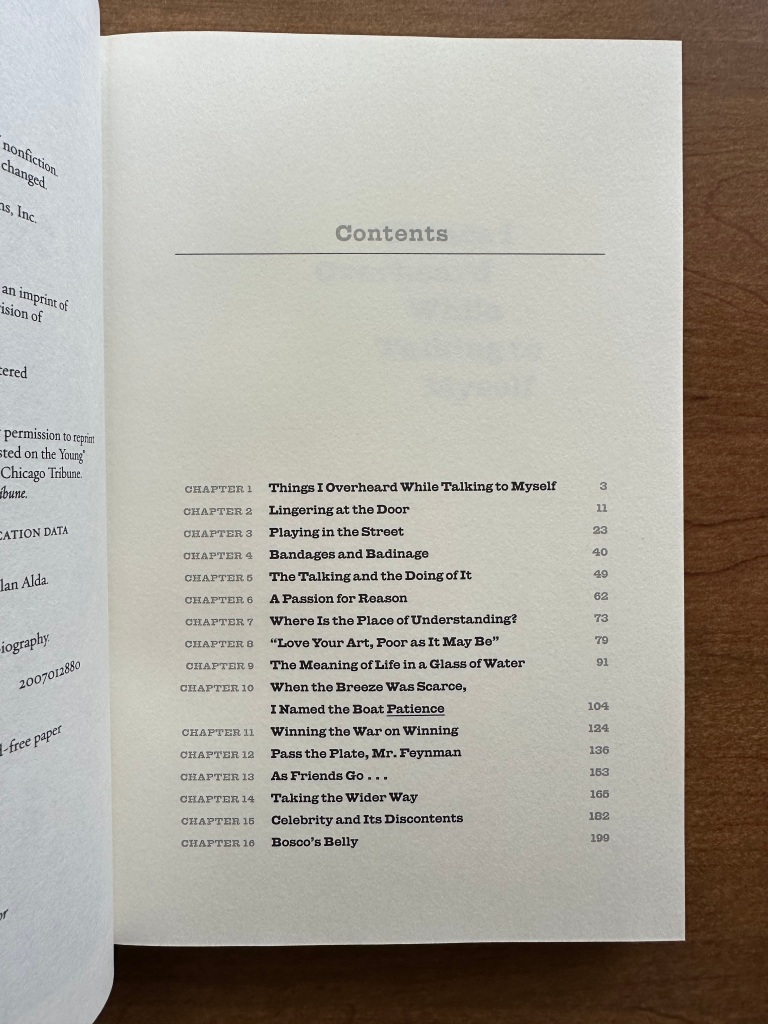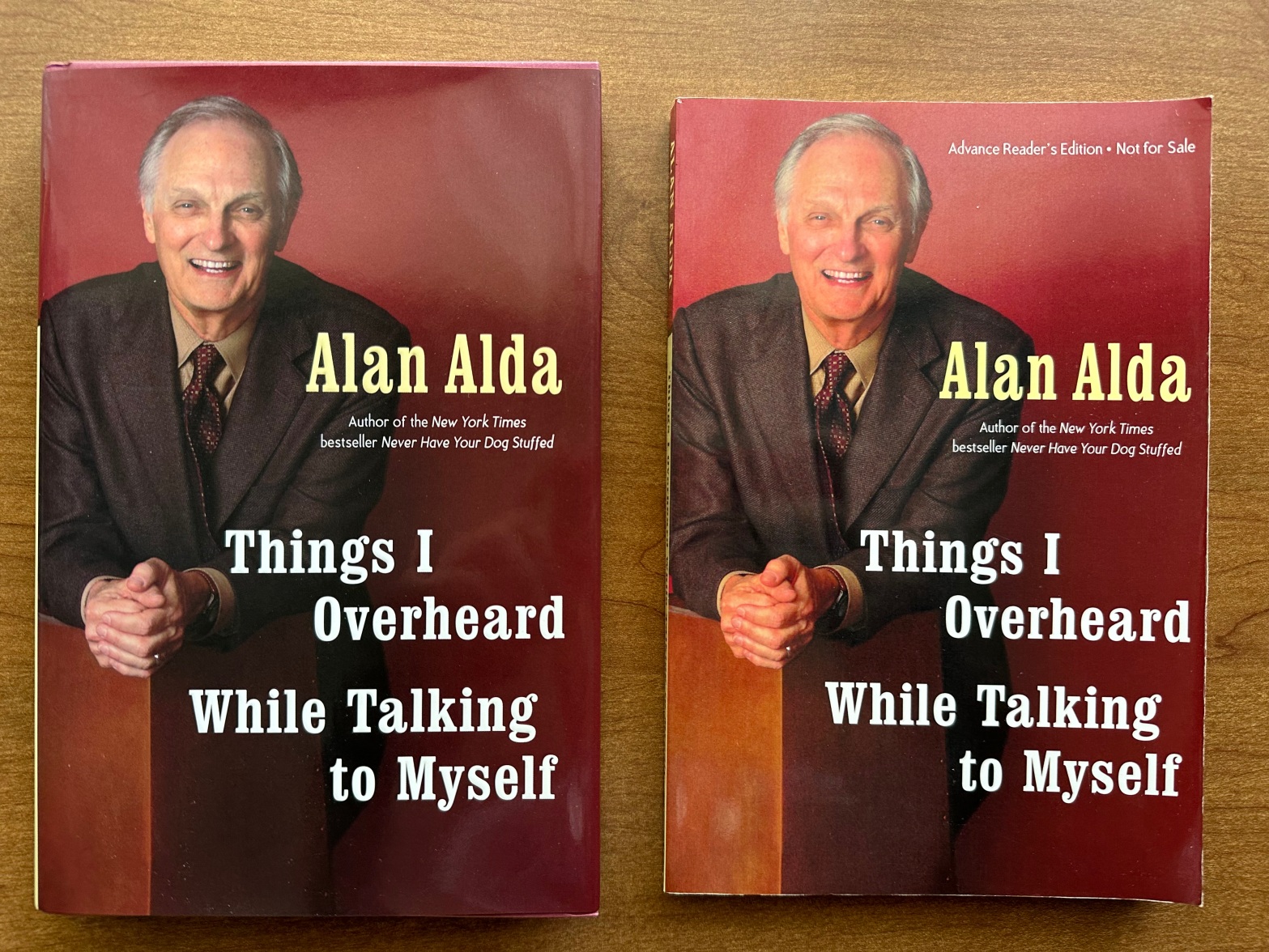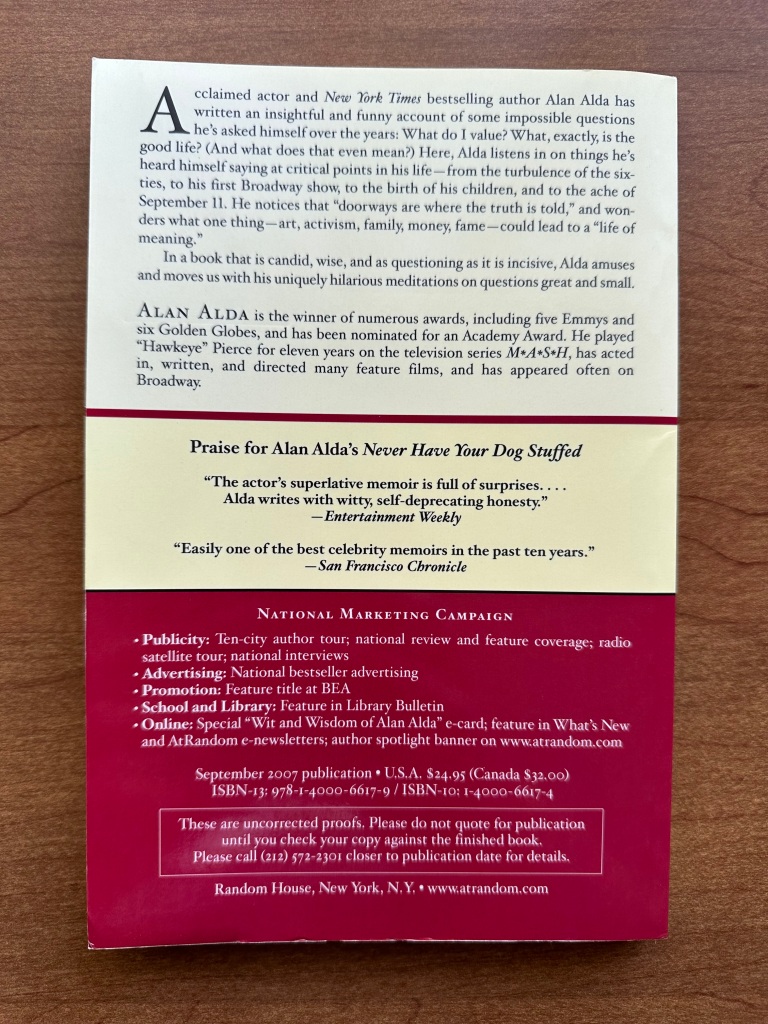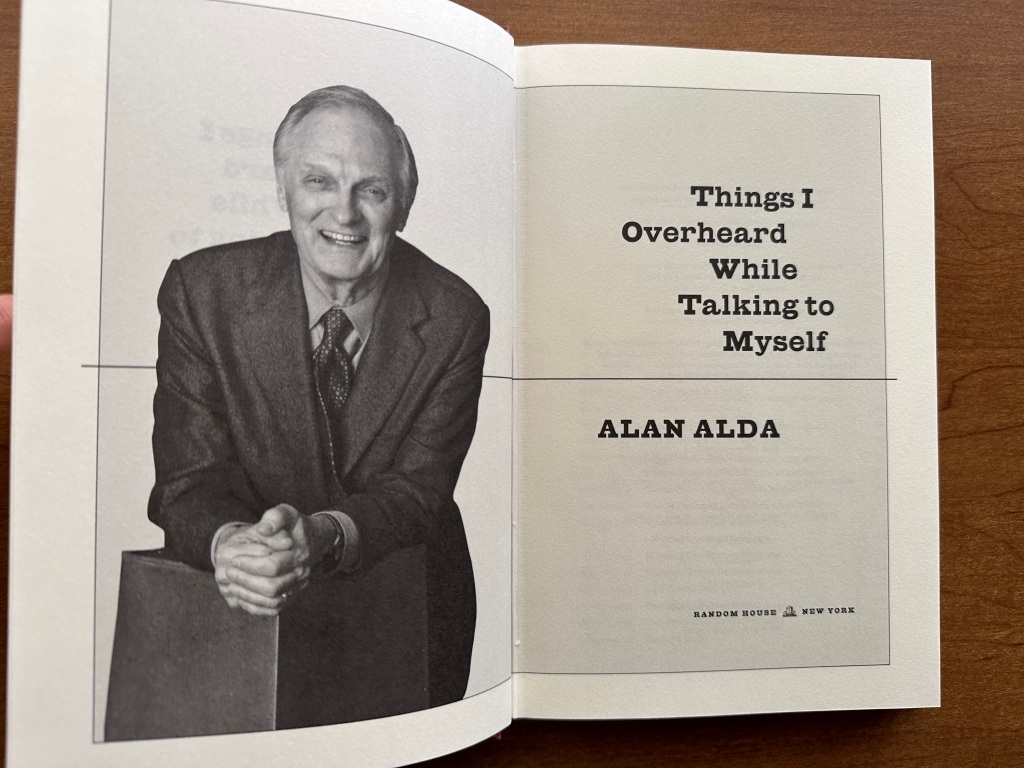What is it?
Alda, Alan. Things I Overheard while Talking to Myself. New York: Random House, 2007.
Why should M*A*S*H fans care?
Alan Alda was a staple on M*A*S*H, both on camera and behind the scenes. In his follow-up memoir, Alda asks life questions through a series of speeches he gave. He reflects on being a parent, his activism, and discusses life lessons. While the book is not about M*A*S*H, there are plenty of insights into the man who played Hawkeye.
As a M*A*S*H fan, what part(s) should I read?
As with, Never Have Your Dog Stuffed and Other Things I’ve Learned, if you were hoping to learn more about M*A*S*H in this book, you will be disappointed. Alda already wrote about M*A*S*H in his book The Last Days of M*A*S*H. There are some M*A*S*H references as he makes connections to life lessons, but there isn’t a dedicated chapter.
TL;DR Review
In his follow-up memoir, Alda picks up right where he left off in his last book on a mountain top in Chile. The experience allowed him to reflect on life, and Things I Overheard while Talking to Myself is that reflection. He digs deeper into philosophical questions such as “what is a good life” and “what do I value?” Alda uses excerpts from speeches he gave over the years at commencements and other functions to explore the deeper meaning of life. Where Never Have Your Dog Stuffed and Other Things I’ve Learned is where Alda discussed stories from his life, Things I Overheard while Talking to Myself is where he reflects on the meaning of life and offers some wisdom along the way.
Full Review

Following the success of his first memoir, Never Have Your Dog Stuffed and Other Things I’ve Learned, Alan Alda released a follow-up memoir in 2007. The book, Things I Overheard while Talking to Myself, picked up where the first book left off and takes the reader on a journey of reflection and lessons learned. Alda recounts stories from his life has a father, activist, and actor, but presents them in a different light. He pulls from speeches he gave over the years to find the nuggets of wisdom that he had given. In that sense, the act of “overhearing himself” is Alda reflecting on the meaning life and larger, philosophical questions. That’s not to say the book is in any way less entertaining than the first. He is a great writer and story teller! Instead, the reader gains not only a greater understanding of Alda the man, but can draw lessons for themselves on a life well lived.
As I re-read this book, there were a few things that stuck out. I really enjoyed reading excerpts from several of his speeches. Alda is an excellent writer and public speaker, so for him to share the wisdom that he shared with graduates and various groups over the years is interesting. But looking beyond the words, the speeches offered life lessons. For example, he talks about finding balance when raising children. He ultimately concludes that “our [parents] job is not to shape them or badger them, but to love them. Simply love them.” While I don’t have children, I have friends who do, and I have gotten to know their kids pretty well. I am always amazed at how much they know, how much they see, what they process, and how self-reflective they are. At a young age, we were all more curious and willing to explore, but at some point, we were taught that was “child’s play.” I disagree with this concept, and Alda stresses loving and supporting children so they can learn and make mistakes on their own.
Alda covers a number of other topics including his activism in the 1970s and how important it was for him to find something to be passionate about. Like his first book, Alda does not talk about acting a lot. He does write about acting on Broadway, but he asks bigger, reflective questions about the meaning of life. I found his thoughts on transitions of life to be very interesting. It is common for us to become more reflective as we get older, but we often don’t see the transitions of life while they are occurring. We’re too busy living. Why do we have to wait until we are older to stop, reflect, and appreciate life? Much like Alda’s questioning throughout the book, I found myself questioning things as I read too. That is a powerful statement about a book that many would classify as an “actor’s memoir.”
What I found most endearing about Alda’s book is that he often asks more questions than he offers answers. That is refreshing because we often read books for answers and connections to our own lives. While connections can certainly be made here, it isn’t required. Alda shares his thought processes with us, and this left me feeling a little relieved because I realized that I am not the only person asking these questions. He made me realize that it is okay to question. In fact, it is normal to question your life and what is important to you. And the answers will not be the same for everyone. What is important to me won’t be the same as what is important to you. And, most icnteresterestly, what is important to me NOW may not be the most important thing to me in a few years. I put down Alda’s book more reflective of my own life to this point than I have ever been. I was not expecting that. But as I said in my review of Alda’s first book, Alda is “far more than ‘that guy from M*A*S*H.'” That truly comes through in Things I Overheard while Talking to Myself. The book is still in print and can be purchased on Amazon, Barnes & Noble, or other booksellers. You can also pick up pre-owned copies, in hardback or paperback, online.



